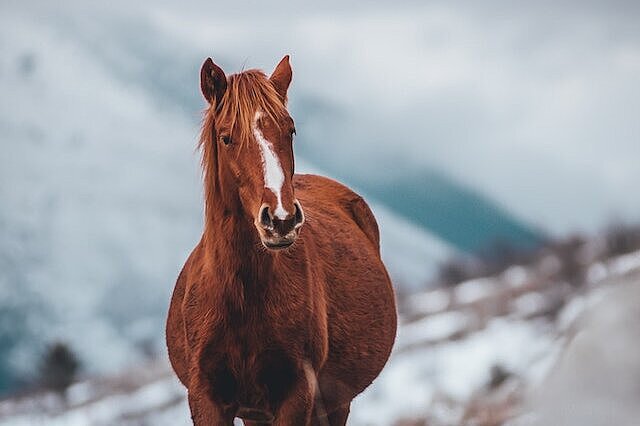Lamb liver

Benefits of lamb liver for dogs
Lamb liver has several benefits for your dog's health. Firstly, it is a high-quality source of protein that strengthens your dog's muscles and immune system. Secondly, it contains a lot of iron, which is important for the formation of red blood cells and transports oxygen in the body. It also provides vitamin A, which is essential for your dog's eyesight, skin and mucous membranes. Finally, it provides your dog with B vitamins, which are involved in many metabolic processes and support nerve function.
Lamb liver is also a tasty food for dogs that many dogs like to eat. It has an intense flavor and a soft consistency that mixes well with other ingredients. You can feed lamb liver raw or cooked, depending on what your dog prefers. You can also use lamb liver as a treat or reward, for example during training or as a special treat between meals.
Disadvantages of lamb liver for dogs
Lamb liver also has some disadvantages for your dog's health. Firstly, it is very high in fat and can therefore lead to obesity or digestive problems if you feed it too often or in too large quantities. Secondly, it contains a lot of vitamin A, which can be toxic in high doses and can lead to symptoms of poisoning such as vomiting, diarrhea, loss of appetite or bone changes. Lamb liver can also contain bacteria or parasites that can make your dog ill if you feed it raw. You should therefore always make sure that you buy fresh, high-quality lamb liver and wash or heat it thoroughly before feeding it to your dog.
How much lamb liver should you feed your dog?
The optimal amount of lamb liver for your dog depends on various factors, such as your dog's age, weight, activity level and health. In general, however, lamb liver is only intended as a supplementary food and should not make up more than 10% of the daily food ration. This means, for example, that you should not feed a 10 kg dog more than 50 g of lamb liver per day.
Lamb liver is a nutritious and tasty ingredient for dogs that has many benefits for your dog's health. However, you should only feed it in moderation and pay attention to quality and hygiene in order to avoid possible disadvantages. If you follow these tips, you can offer your dog a varied and healthy diet.
If you notice any signs of hypersensitivity or poisoning in your dog, you should see your vet immediately. We are not a substitute for a vet, but we try to be as accurate as possible. Every dog reacts differently and we recommend you get a second opinion or consult your vet if in doubt.
Stay healthy and take good care of your four-legged friend!😊
Similar to Lamb liver
Calf's liver is the liver of young cattle that are less than one year old. It has a light brown color and a soft consistency. Calf's liver is one of the so-called offal by-products from meat...
Rabbit liver is the liver of rabbits that are bred for slaughter. The liver is an important organ that fulfills many functions in the body, such as the detoxification of harmful substances, the...
Horse liver is the liver of horses that are bred for slaughter. It belongs to the offal category, which is often regarded as a by-product of the meat industry. However, offal is very rich in...
Reindeer liver is the liver of reindeer, which mainly live in the northern regions of the world. Reindeer are wild animals that feed mainly on lichens, grasses and herbs. Their liver is therefore...



